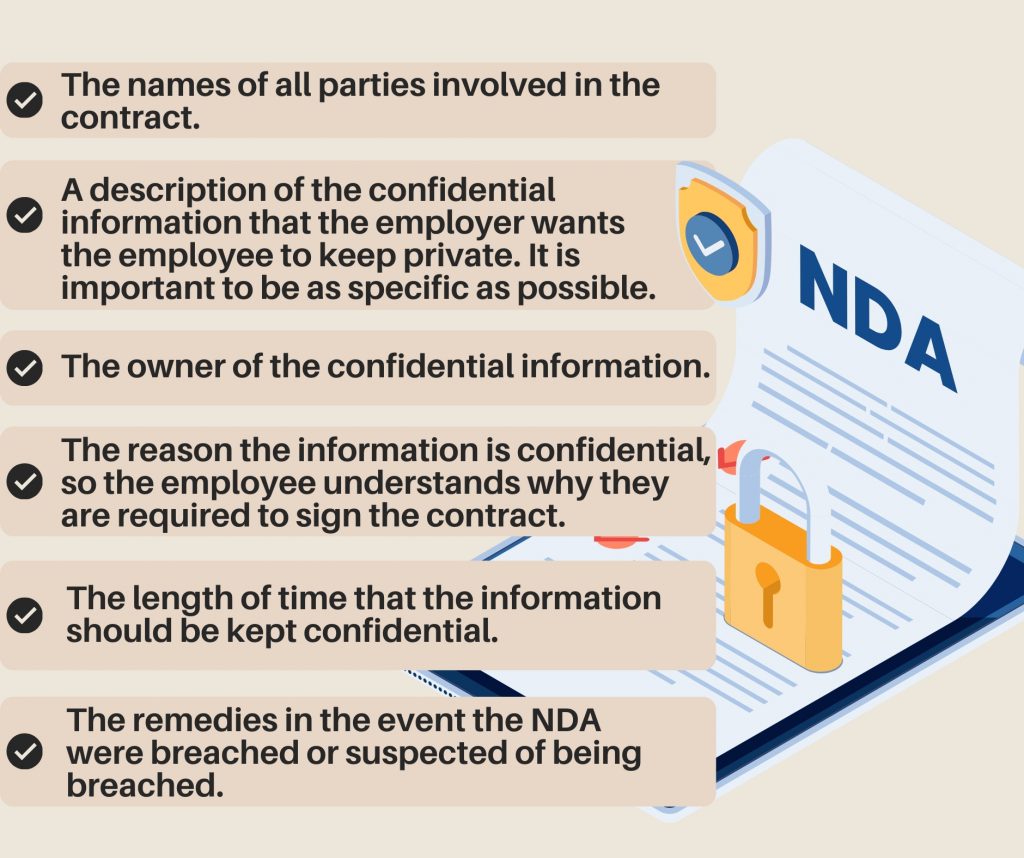17th Apr 2024

Non-disclosure agreements (NDAs), also referred to as Confidentiality Agreements, are legally binding contracts in which one or more parties enter into a confidential relationship because of sensitive information. NDAs are used to help keep valuable business information secret.
NDAs are not just for large businesses. Small businesses will also benefit from having non-disclosure agreements because they too have information worth protecting and keeping confidential. Some businesses may require all employees to sign NDAs when they are hired, but others may just require the employees with access to confidential information to sign them. This confidential information could include:
*Trade Secrets such as test data, customer lists, new products or new developments, and expansion plans, among others;
*Business plans, processes, and procedures;
*Intellectual Property such as copyright, trademarks, patents, etc.;
*Research and Development;
*Client information;
*Sales and marketing plans; and
*Company financials and passwords.
Another reason an NDA would be used is to protect the company from an employee leaving and using the information they were taught to start their own competing business. Non-disclosure agreements are not only used by businesses with their employees, but they can also be used with independent contractors, potential investors, vendors, and other business associates.
There are several benefits to having an NDA for your business:
- Keep sensitive and confidential information about your business a secret.
- Inexpensive way to help keep business information secret.
- Builds trust between the parties signing the NDA.
- Limits the likelihood of information being leaked or information being stolen by competitors.
- Helps attract investors which in turn would help businesses gain the capital they need.
If the employer requires its employees to sign NDAs, it is important that the employees fully understand what they are signing so they do not accidentally leak information or violate the contract without knowing it. It is also important that NDAs contain specific information to make sure they are legally valid. They must contain:

NDAs are legally binding contracts, so if they are breached, the parties involved could be subject to lawsuits. Typically, in the employment context, upon finding out that an NDA was breached an investigation will be conducted by a legal team and the HR (Human Resources) department. Concrete evidence will need to be found to prove the NDA was violated. The consequences would depend on what the terms of the contract say. If an individual breaches an NDA they could face financial penalties, termination of employment, reputation damages, and in some cases criminal charges.
One current concern with NDAs involves their use in a separation agreement. The National Labor Relations Board (NLRB) has found that the employer’s use of NDAs and non-disparagement provisions in separation agreements for non-managerial employers may unlawfully interfere with, restrain or coerce the employee’s exercise of their right to engage in concerted activities.
The confidential information protected by a non-disclosure agreement is typically the information that makes your business successful and unique. Having a non-disclosure agreement for your business can help put your mind at ease. With so much involved in running a business, making sure your confidential information is protected is a necessity.
Written by Michael C. Gibbons
Related Articles


